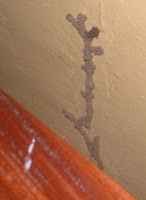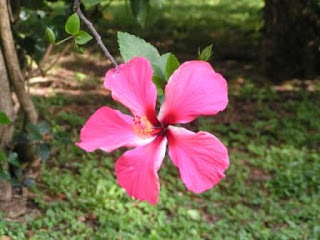 We discovered, to our delight, that our two days in Kampala included a Sunday when Namirembe Cathedral was holding its carol service. Three years ago, coming here in December for a visit, we had happened upon a rehearsal for this service, hearing strains of ‘Once in Royal David’s city’ coming from the open doors of the cathedral as we walked outside in the tropical heat. But we had missed the actual event on that occasion. So now was our chance.
We discovered, to our delight, that our two days in Kampala included a Sunday when Namirembe Cathedral was holding its carol service. Three years ago, coming here in December for a visit, we had happened upon a rehearsal for this service, hearing strains of ‘Once in Royal David’s city’ coming from the open doors of the cathedral as we walked outside in the tropical heat. But we had missed the actual event on that occasion. So now was our chance.Namirembe has an excellent choir of men, women and boys. They are accomplished in a wide repertoire from classical English church music to rhythmic African songs and visually stunning in traditional red cassocks and white surplices. So we rejoiced in traditional settings of Christmas carols accompanied by excellent organ playing, with the usual nine lessons read between the carols.
It would have rivalled most services of Nine Lessons and Carols in England, almost..... but for the ‘Namirembe Cathedral Media Team’ - four or five men dressed in the fluorescent yellow jackets more usually worn by men repairing roads in England. Of course mending roads is a lost art in Uganda so maybe the gear had been re-designated for use by cathedral staff. Their brief was clearly to capture as much as possible of the event on camera, both still and video. So, throughout the service, members of the Media Team, resplendent in fluorescent yellow, (beautifully counterpointing the choir red) stood directly in front of the singers and readers, pointing camera lenses into people’s faces and shining brilliant arc lights to illuminate the action (“ve have vays of making you sing”!!!). Rarely could we see the choir at all, just the back of three of four men bristling with electronics. They fell over each other and had whispered conversations, wires trailing and lights shining, while the conductor and choir tried to carry on regardless. Whether the choristers could even see each other or their conductor most of the time we doubted – ‘Only in Africa!’
But despite it all, the significance of the event was not lost on us and it was a great service. Here we are in Uganda, temperature around 30°C, brilliant sun illuminating palm trees standing outside the open cathedral doors, joining a full congregation to celebrate the same wondrous events of Christmas we remember in much colder climes. The truth of what we sing and hear is universal throughout time and across cultures, not ‘only in Africa’; although that Media Team was probably unique to this continent.
Come and worship...Christ the newborn King

















 When it rains in Uganda, everything is disrupted. Its a bit like snow in England. We awoke this morning to a grey sky which, during the next hour, became blacker until the inevitable happened at 8am, just as we were due to go out for the 9km drive to the Diocesan HQ. Thunder, lightning, deafening rain battering on the roof. Torrents of water cascading down the hillside. A little frog sheltering beside one of our pot plants on the verandah – obviously this was too much even for aquatic creatures such as he.
When it rains in Uganda, everything is disrupted. Its a bit like snow in England. We awoke this morning to a grey sky which, during the next hour, became blacker until the inevitable happened at 8am, just as we were due to go out for the 9km drive to the Diocesan HQ. Thunder, lightning, deafening rain battering on the roof. Torrents of water cascading down the hillside. A little frog sheltering beside one of our pot plants on the verandah – obviously this was too much even for aquatic creatures such as he.





























